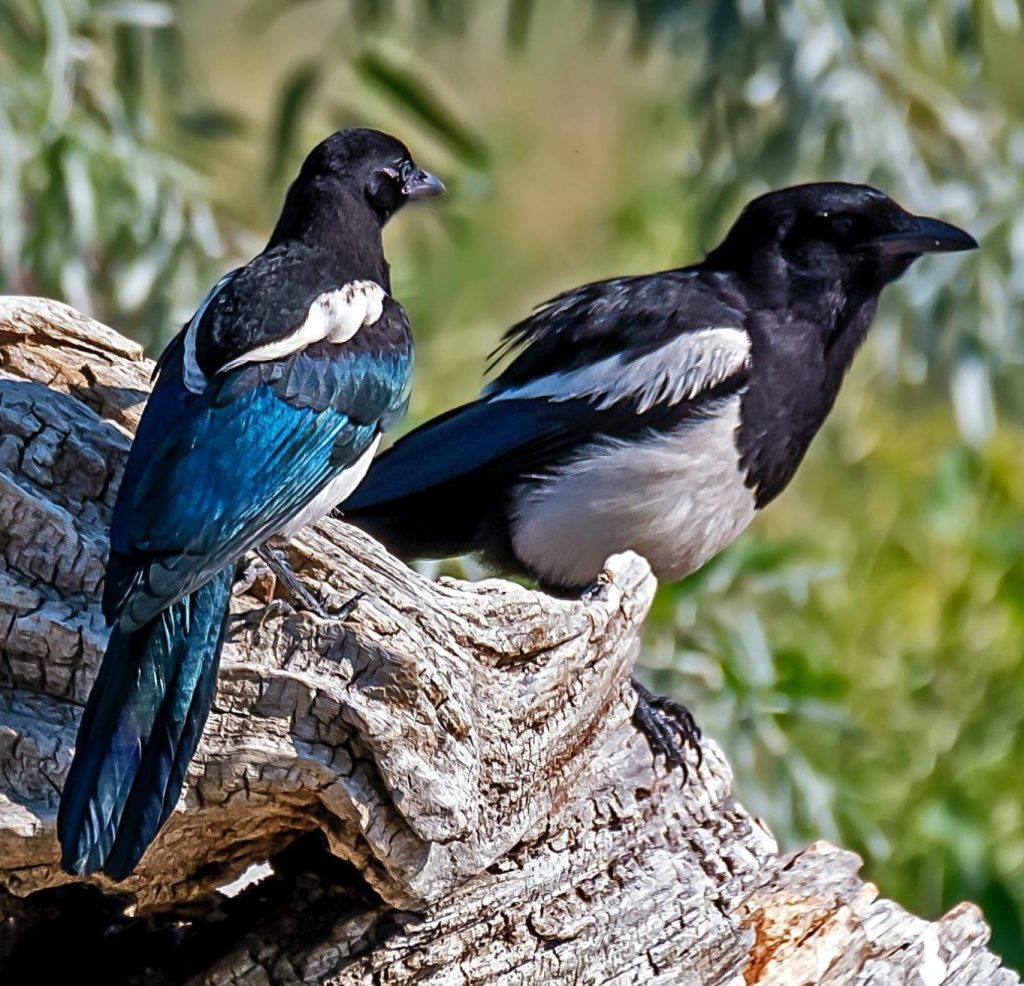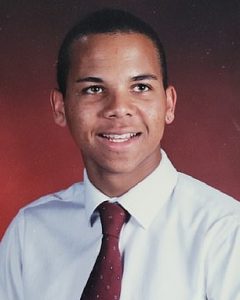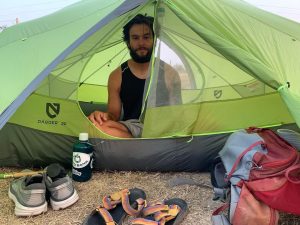
Our Top 10 Blog Posts: Happy Birthday to the Blog!
Holy sh*t our blog turns two today. We can hardly believe it – we started off as a scrappy blog with more ideas than we knew what to do with. Two years later and we have 41 blogs posts with an amazing variety of formats, styles, and topics (and still way too many ideas!).
We also (finally) have a name: The Magpie. We chose this name for a few reasons: one is because our editor loves birds and specifically magpies. More importantly, however, we chose this name for its different cultural interpretations.
In China, magpies are thought to bring good news and are often depicted in Chinese art as symbols of incoming good fortune. There are also several folk legends about magpies saving men from false accusations, and reuniting lost lovers.
In the U.K., there is a superstition that if you see one magpie, it’s bad luck; but if you see two, it’s good luck. The togetherness and security represents is very much in line with our values on the blog and with the Foundation as a whole. Magpies are also known to be mischievous and playful: they like to steal shiny things, collecting little treasures.
That’s what we think this blog is, and what we hope it will be: a nest of treasures from marginalized communities and people who have been systemically oppressed by white supremacist colonialism. You don’t have to be perfect to tell a story or have your story heard: you simply have to have one, and that is enough to make it a treasure.
This year, we are planning to publish more installments of our new series “Unfinished Stories” and do a deep dive into a topic no one seems to like to touch: reparations.
But without our past, there would be no future. We’re celebrating our second birthday by highlighting our top 10 blog posts of all time (so far!). We hope you check some of these stories out, and stay with us as we enter an amazing new year.
#10: “Going Far Together: Spotlighting the Caucus of African American Leaders”
One of the aspects of our blog that we’re most proud of is our series of questionnaires, mostly for the diversity of answers they offer. They allow entire organizations to share their stories, highlighting our value of respecting every worker equally from interns to executives.
One of our oldest allies comes from our connections in Maryland: the Caucus of African American Leaders. Last February, seven Caucus members (including several founding members), filled out our questionnaire, discussing their perspectives on white supremacy and systemic racism in Maryland and throughout the country.

#9: “Passionate, loving, and trustworthy: The Unforgotten Death of Keith Warren (Part 1)”
Keith Warren was a loving 19-year-old living in Silver Spring, MD when he was suddenly found dead in a wooded area behind his house.
Over three decades later, his younger sister Sherri is still seeking justice and accountability not only for his death, but for the police misconduct in Keith’s case that made finding his true cause of death essentially impossible.
Keith’s story has been featured on Unsolved Mysteries twice, and is now the subject of the Discovery+ documentary Uprooted. Back in June, we sat down with Sherri for the second installment in our new series “Untitled Stories”. Part 1 focuses on Keith’s childhood, his goals and dreams, and the initial circumstances of his death.
#8: “A Snapshot of Algorithmic Justice: Spotlighting Encode Justice”
In every generation of March On Foundation, fiscal sponsorship of grassroots projects has been a core part of our mission. We are always immensely proud of the work that our fiscal projects do, and we want the world to know about their passion.
One of our fiscal projects is a global, youth-led organization called Encode Justice. They focus on how technology and data gathering contributes to systemic racism and white supremacist colonialism. They organize and educate around data bias, deep fakes, and other technological risks.
In 2022, we sent them a questionnaire to learn more about their organization, and their answers were fascinating.
#7: “The Dangers of Crossing the U.S./Mexico Border”
It’s no secret that the border between the U.S. and Mexico can be a place of misery for migrants trying to find a safer place for themselves and their families to survive. Both by international law and the laws of human decency, we are bound to help them. Instead, migrants at the southern border face incessant racism and are often mistreated, assaulted, and abused.
We were so proud of our previous intern Brenda Panama for shedding some light on this topic by interviewing members of her own community who crossed the border themselves.
Brenda has since moved onto new work experiences at Weill Cornell Medicine in her journey to become a neurosurgeon. We couldn’t be prouder of her, and we cherish the pieces she wrote for this blog. We miss you very much, Brenda!
#6: “Book Bans, School Boards, and Burnout: An Interview with Shivi Mehta”
Get insight into the world of student activism through our interview with education organizer Shivi Mehta. We met Shivi in 2022 when she was a panelist on the first installment of our program “this season”. As a sophomore in high school, she and her comrades were able to overturn several book bans in her county’s school district in Georgia.
This came with a price for Shivi and her classmates, despite their age: she faced racism as someone of South Asian descent; she has been harassed many times in board meetings; and she was even doxxed at one point. We discuss these challenges, as well as their significant successes, throughout this interview.
#5: “There and Back Again: An Interview with Aiden Ardine (Part 1)”

During COVID, the Foundation focused on helping restaurant and hospitality workers through our fiscal projects Dine11 and the COCO Fund.
Many others had similar ideas, including two brothers from New Jersey: Aiden and Louis Ardine. However, their idea was rather unique: in 2021, they walked across the country from New Jersey to California. They had many stops along the way, collecting stories from workers while raising money at the same time.
We met the Ardine brothers at their stop in Philadelphia. Through the COCO Fund, we followed their journey and they gave back to us by raising thousands of dollars for our applicants. We had the honor of taking this very special interview with Aiden one year after the end of their journey.
#4: “Loving, Blessed, and Kind: The Unsolved Death of Katherine Morris (Part 2)”
You’ll be seeing a lot of Rev. Marguerite Morris and her daughter Kathy from here out. We’ve conducted two interviews with Rev. Morris. One was the very first installment of our series “Unfinished Stories” about the untimely death of her daughter Kathy. It’s an interview we hold very close to our heart.
Kathy was a kind young woman just finishing her degree in Family Sciences at the University of Maryland College Park. The kids she worked with adored her, as did her family and friends.
Her life was cut short in May 2012 – her body was found in her car in the parking lot of Anne Arundel Community College at Arundel Mills. Part 2 of our interview with her mother Rev. Morris shows the impact of Kathy’s death on her family and friends, and the police misconduct that botched her case.
#3: “A Mother’s Prerogative: An Interview with Rev. Marguerite Morris (Part 1)”
Activists are well-known for having too much to do and little time to do it. There are so many priorities and not enough resources. Rev. Morris has been an organizer/activist for her entire life, and few know this life better than her.
Wherever she goes, Rev. Morris becomes a symbol of accountability and change. Since the death of her daughter Kathy in 2012, she has zeroed in on police accountability in Anne Arundel County, MD. She’s had several successes, including getting her daughter’s manner of death changed from “Suicide” to “Undetermined”, a rare feat in the criminal justice system.
In Part 1 of our interview, Rev. Morris discusses her childhood and how she found her calling for service.

#2: “Loving, blessed, and kind: The Unsolved Death of Katherine Morris (Part 1)”
As you can see, Kathy’s story resonates with a lot of people. It is the only interview on our blog where both parts made our Top 10 list.
While Part 1 introduces the circumstances of Kathy’s death, a lot of it discusses Kathy as she lived: her childhood and education, likes and dislikes…
As this series develops, we may edit our standard interview questions for “Unfinished Stories” to focus more on the lives of our subjects, because their stories are so much more than their deaths.
#1: “Blood Avocados: An Unexpected Conflict Commodity (Part 1)”
When our very first contributor Felicia Attor said she wanted to write on blood avocados, we were as interested as we were confused: what are blood avocados?
Turns out that avocados are a little known conflict commodity – natural resources that are sourced from areas experiencing conflicts, and where human rights are abused in the procurement of that commodity. It involves a dangerous circle of trade that involves extortion of avocado farmers and international gun trafficking.
Gaining a contributor was such an accomplishment for the blog, the excitement we felt cannot be described. Since Felicia, we’ve had two additional pieces written by contributors, with several more on the way.
Big things are coming this year: deep dives into reparations, a new series on different mental health issues, and our very own logo!
Follow us on Instagram – @marchonfoundation – to get updated on when we have new posts!